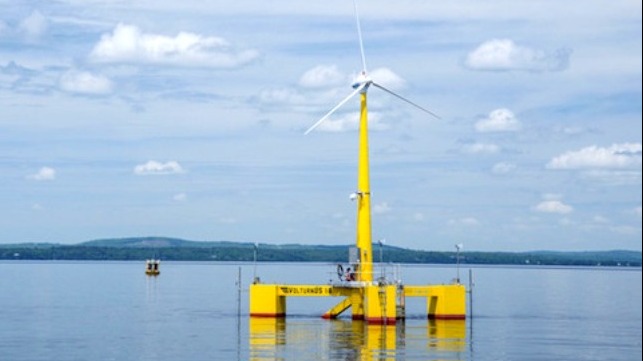
Marine has taken the unusual step of prohibiting the installation of offshore wind projects from the state’s waters. Following through on a previous promise to protect the state’s waters, Governor Janet Mills signed into law the bill last week, which however leaves open the possibility of wind farms further offshore, and according to the governor positions Maine as the first state to encourage floating offshore wind farms.
“This legislation cements in law our belief that these efforts should occur in Federal waters farther off our coast through a research array that can help us establish the best way for Maine to embrace the vast economic and environmental benefits of offshore wind,” said Governor Janet Mills. “I applaud the Legislature’s strong bipartisan support of this bill, which I believe demonstrates that offshore wind and Maine’s fishing industry can not only coexist but can help us build a stronger economy with more good-paying jobs and a brighter, more sustainable future for Maine people.”
The bill won support in the Maine Legislature based on the arguments that the local waters needed to be preserved for recreation and the commercial fishing industry. They highlighted that 75 percent of Maine’s commercial lobster harvesting occurs in the waters that will be protected under the legislation. The final bill was a compromise that sought to meet the concerns of the fishing industry, wildlife, and environmental organizations and concerns about the environmental impact and appearance of the wind turbines close to shore while preserving a path for Maine to participate in the emerging industry.
The governor was challenged to walk a tightrope to support the bad while also encouraging the development of offshore wind to help the state’s energy and economic policies. The Gulf of Maine is home to some of the highest sustained wind speeds in the world. This makes power generation from offshore wind a key opportunity for Maine both to reduce its greenhouse gas emissions and reduce the more than $4 billion Maine residents are estimated to spend each year on fossil fuels to heat their homes.
Governor Mills highlights that last month Maine passed another bill that advances the creation of the nation’s first research area for floating offshore wind in federal waters of the Gulf of Maine. The University of Maine is leading research into floating offshore wind technology. Mills is proposing a smaller-scale research array, which will contain up to 12 turbines, that plans to use innovative floating platform technology developed by the University of Maine and a public-private partnership with New England Aqua Ventus, a joint venture of two leading global offshore wind companies, Diamond Offshore Wind and RWE Renewables.
Research from the array they said will inform the development of floating offshore wind in the United States and leverage Maine’s ability to take advantage of its home-grown energy resources in the Gulf of Maine. Maine enacted legislation authorizing the Maine Public Utilities Commission to negotiate a contract with a transmission and distribution utility to purchase up to 144 megawatts of energy from the proposed floating offshore wind research array in the Gulf of Maine.
The Governor’s Energy Office is also promising to move forward with a strategic plan for Maine’s offshore wind industry and the country’s first research area for floating offshore wind, located in the Gulf of Maine. The office is identifying a preferred site for the research array, in advance of submitting a formal application for the area to the federal Bureau of Ocean Energy Management (BOEM) later this summer. The GEO is also developing an Offshore Wind Roadmap for Maine, a strategic plan for developing an offshore wind industry in the state, which they are promising to complete by the end of 2022.
SOURCE READ THE FULL ARTICLE
https://www.maritime-executive.com/article/hellenic-coast-guard-to-enforce-covid-rules-for-ferry-passengers